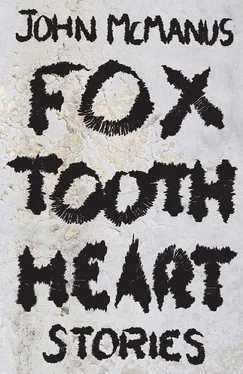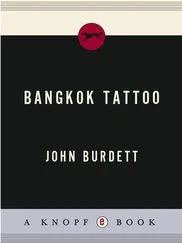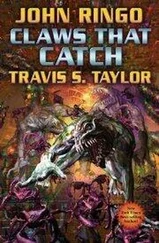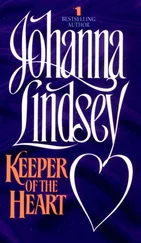John McManus - Fox Tooth Heart
Здесь есть возможность читать онлайн «John McManus - Fox Tooth Heart» весь текст электронной книги совершенно бесплатно (целиком полную версию без сокращений). В некоторых случаях можно слушать аудио, скачать через торрент в формате fb2 и присутствует краткое содержание. Жанр: Современная проза, на английском языке. Описание произведения, (предисловие) а так же отзывы посетителей доступны на портале библиотеки ЛибКат.
- Название:Fox Tooth Heart
- Автор:
- Жанр:
- Год:неизвестен
- ISBN:нет данных
- Рейтинг книги:3 / 5. Голосов: 1
-
Избранное:Добавить в избранное
- Отзывы:
-
Ваша оценка:
- 60
- 1
- 2
- 3
- 4
- 5
Fox Tooth Heart: краткое содержание, описание и аннотация
Предлагаем к чтению аннотацию, описание, краткое содержание или предисловие (зависит от того, что написал сам автор книги «Fox Tooth Heart»). Если вы не нашли необходимую информацию о книге — напишите в комментариях, мы постараемся отыскать её.
Fox Tooth Heart — читать онлайн бесплатно полную книгу (весь текст) целиком
Ниже представлен текст книги, разбитый по страницам. Система сохранения места последней прочитанной страницы, позволяет с удобством читать онлайн бесплатно книгу «Fox Tooth Heart», без необходимости каждый раз заново искать на чём Вы остановились. Поставьте закладку, и сможете в любой момент перейти на страницу, на которой закончили чтение.
Интервал:
Закладка:
Carl wanted to confess his apocalyptic fantasies, but the boys had shifted to wondering whether DHS had noticed their similar passport photos.
The debate, neither scientific nor analytical, bounced meaninglessly back and forth. Hadn’t; had; couldn’t have; must have. Even the speculation—“They’ll learn soon”—was perfunctory and incurious.
“Are any of you religious?” asked Carl, trying to think like a scientist.
“Duh, Ozarks, religious wackos don’t do in vitro.”
“If none of us are, it’s a noteworthy finding.”
“Read the blog,” said Luc, a reply Carl heard again every time he tried steering the talk away from matters of insignificance. The inanity of TV plots; the clones’ annoyance at camp humor. Though he agreed, he took no comfort in shared opinions on trivial matters, unless the others were hiding crimes like his and their curiosity was buried alongside their darkest shame. It was important to bide his time. If he said suddenly, “Last year I kicked a boy and he died,” he would be labeling them all potential killers. They might clam up, cast him out. So he only said “Me too” in response to shared taste after shared taste: elegant designs, anthemic rock chords, Tuscany. To be poor was to know less. “I loved it there,” he said.
After the call ended and the chat continued by IM, they bragged in foreign languages about their prowess in those languages. Carl used Google Translate to reply. Mason asked about his investment portfolio, and he culled an answer. It wasn’t just fear of being exposed in those lies that unnerved him when they scheduled another dialogue for that night. In some odd way he was beginning to feel proud of his family. No, he was troubled at a deeper level. He didn’t think the scientists could have deliberately ruined the Bartons’ lives, nor did he believe they could have peered into the boys’ future and pegged his as the most doomed. Still, it would have been nice to speak to inquisitive people about these ideas.
It had been too long since his last blueprint. He spent the afternoon drawing a federal center to house four coequal chambers of an imaginary government. When it began to resemble a honeycomb, he considered modeling the power structure on the colonial nests of bees. That didn’t suggest a way forward. The chambers, he decided, would be analogous to the human heart’s. A chamber to give oxygen, a chamber to take it back. A chamber to receive blood, a chamber to return it. White blood cells to fight off contagion, kidneys to remove waste, all controlled by the brain, and the honeycomb he revised into the Great Sphinx, jutting into the ocean on a craggy cape. When the government body was done, he hobbled down Branson’s gaudy main drag toward shapely green hills beyond. Another week and he would be hiking again. Did the others spend time outdoors? They skied and sailed, but if they yearned for wilderness, they hid it.
At the turn for Silver Dollar City, Carl considered visiting that old-timey park, finding out if its log flumes and gold-panning stations would awaken latent genetic memories, but he had no money. While Heath and company reaped the advantages of their geography and wealth, he couldn’t even enter Silver Dollar City.
Was his circumstance a maze to puzzle his way out of, he wondered, sulking onward? Was his bar set lower; must the others graduate summa cum laude from Oxford to match a middle-school dropout’s escape from the Ozarks?
The woman who spoke his name seemed to be hovering suddenly behind Carl’s head. He pivoted with his crutch to see an SUV driven by Silas’s mother, Alberta Boyd.
“Carl, is that really you?” said Mrs. Boyd, pulling onto the shoulder. “What on earth did you do to your leg?”
“I was exploring.”
“Silas is at Randy Travis. I’ll give you a ride!”
Seized by eerie panic, he knew she must have deduced the truth— we all have cameras behind our eyes —but then he recalled that Silas had been a Junior, named for his father.
“Thank you, ma’am. I like to walk.”
“You must live with Sheila. Does she still sing?”
“She waitresses at a theater.”
“That’s nice.” He had never heard his sister sing. In silence he and Mrs. Boyd faced each other. Come talk to me, she’d said, with no idea what she was urging. He’d grown furious because it would have felt so good. Even now, light-headed, holding onto her side-view mirror, he nearly sobbed at the idea of it. Of admitting anything. The bombs, the crack, the other clones, the blueprints, so many secrets, amassing until a dam burst.
“I kicked Silas in the balls,” he said. “He died because of me.”
“That’s sweet of you,” said Mrs. Boyd without even blinking, “but it was his pervert cousin up in Tulsa.”
Over , he almost said. You went over to Tulsa, not up.
“I’m not a pervert, but he asked me to do it and I did.”
“He admired you, Carl. You were a good friend.”
“At first I wouldn’t. I didn’t think I’d like it.”
“It was his cousin Rabbit. He’s in juvie now, up in Tulsa.”
Why wasn’t he glad? Would he feel this way forever? Trust me, he wanted to shout. He didn’t. Again she offered a ride. “Walking clears my head,” he said, refusing again, so Alberta Boyd drove off, leaving him alone with the old dread, fierce as ever, haunting him like a real ghost, and not even Marissa’s; where was her ghost? Hadn’t Carl done something bad to Marissa, too?
There were motels, family fun centers, a wax museum with a parking-lot carnival where he played midway games, tossing darts at balloons until he won a stuffed black bear that wore a toddler-size Branson T-shirt. Gateway to the Ozarks , it read. He wedged the bear in his armpit as a pad for his crutch. Back home, in wait for his pseudo-brothers to come online, he pulled up the Branson page. “Branson is a city in Stone and Taney Counties in the US state of Missouri,” it began.
Placing the cursor after the subject of that sentence, Carl added, “known as the Gateway to the Ozarks,” setting off the new text with commas since it was a nonessential clause.
He clicked through to his hometown’s page: a stub, in danger of deletion. He wrote about cash crops and commerce and linked to similar text in stubs about other Ozark towns. He was hoping to save them. There was still time. He edited mountains nearby, mountains in other states, other countries, even other worlds. With his atlas open to the moon he searched for peaks unnamed, as if he possessed any worthwhile knowledge of them. He gave Mons Moro a page. He gave a page to Mons Gruithuisen Delta. Like his description of Branson, they would be removed for lack of significance, but he denoted elevation and coordinates and name origins until the bell chimed.
“Hey,” he said when the other clones came onscreen, expectant, peaceful, mischievous, resourceful: four kinds of happiness to contrast his empty dread.
“Hey, you still sound like a hick,” Heath said.
“You’re still a fuckwad,” Carl said, and the others laughed in good spirits, seeming glad he’d joined in.
“I was reading about dialect discrimination. Apparently, it’s bigoted to make fun of hillbillies and hicks.”
They chuckled as if they knew what was coming. Even in his unease, Carl wondered if Heath’s upbringing stifled his innate polite humility, or had history failed to catch that Heath’s was the more natural Jeffersonian mode?
“What’s that say behind you?” asked Luc, of the stuffed bear.
“I won it at the fair.”
“Branson, then something smaller.”
“Gateway to the Ozarks.”
“You’re the gateway to the Ozarks,” said Heath, resurrecting Silas’s last living taunt: “ You’re an eroded plateau.” The words echoed off Thistle Mountain and across the months and miles. To take the clones’ laughter to heart was ridiculous. Obviously Carl wasn’t an eroded plateau. By the joke’s mechanics, whatever he uttered was rendered absurd. Was it so absurd, though, to call a reborn Enlightenment naturalist who climbed hills and studied maps — who turned the local range’s name over in mind until it struck him as some ur-language’s first word — the gateway to those mountains?
Читать дальшеИнтервал:
Закладка:
Похожие книги на «Fox Tooth Heart»
Представляем Вашему вниманию похожие книги на «Fox Tooth Heart» списком для выбора. Мы отобрали схожую по названию и смыслу литературу в надежде предоставить читателям больше вариантов отыскать новые, интересные, ещё непрочитанные произведения.
Обсуждение, отзывы о книге «Fox Tooth Heart» и просто собственные мнения читателей. Оставьте ваши комментарии, напишите, что Вы думаете о произведении, его смысле или главных героях. Укажите что конкретно понравилось, а что нет, и почему Вы так считаете.












